Myeloid-derived suppressor cells promote cross-tolerance in B-cell lymphoma by expanding regulatory T cells
- PMID: 18593947
- PMCID: PMC2887390
- DOI: 10.1158/0008-5472.CAN-07-6621
Myeloid-derived suppressor cells promote cross-tolerance in B-cell lymphoma by expanding regulatory T cells
Abstract
Tumor-induced T-cell tolerance is a major mechanism that facilitates tumor progression and limits the efficacy of immune therapeutic interventions. Regulatory T cells (Treg) play a central role in the induction of tolerance to tumor antigens, yet the precise mechanisms regulating its induction in vivo remain to be elucidated. Using the A20 B-cell lymphoma model, here we identify myeloid-derived suppressor cells (MDSC) as the tolerogenic antigen presenting cells capable of antigen uptake and presentation to tumor-specific Tregs. MDSC-mediated Treg induction requires arginase but is transforming growth factor-beta independent. In vitro and in vivo inhibition of MDSC function, respectively, with NOHA or sildenafil abrogates Treg proliferation and tumor-induced tolerance in antigen-specific T cells. These findings establish a role for MDSCs in antigen-specific tolerance induction through preferential antigen uptake mediating the recruitment and expansion of Tregs. Furthermore, therapeutic interventions, such as in vivo phosphodiesterase 5-inhibition, which effectively abrogate the immunosuppressive role of MDSCs and reduce Treg numbers, may play a critical role in delaying and/or reversing tolerance induction.
Conflict of interest statement
The authors have no conflict of interest to declare.
Figures
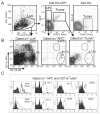
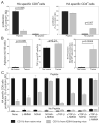
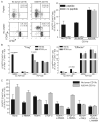
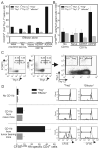
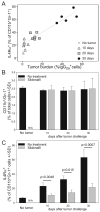
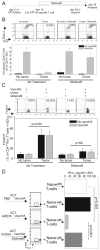
References
Publication types
MeSH terms
Substances
Grants and funding
LinkOut - more resources
Full Text Sources
Other Literature Sources

